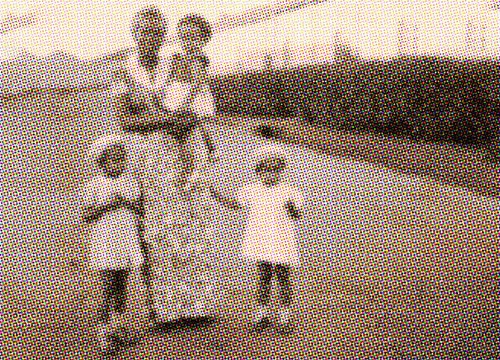Biracial Children, African Mothers and Colonization: a Global Case for Reparations
Event


African Futures Lab
This side event to the 3rd session of the Permanent Forum for People of African Descent – co-organized with the African Futures Lab and Amnesty International, in partnership with the Justice Initiative, L'Association des Enfants des Belges Laissés au Congo (AEBLC), l'Association des Métis des Grands Lacs (AMGL Burundi) and The Association of Mixed Race Irish – will address a range of demands for justice and reparations from biracial people across Europe and Central Africa.
Drawing on various cases of biracial child abduction in Europe and Africa, speakers will look at the experiences of African mothers and biracial people who have sought justice and reparations in recent decades. The panel will also address the European States' resistance to fulfil their obligations under international law to give justice and reparations to the victims of these colonial policies.
To coincide with the event, the Justice Initiative's exhibition 'SHAME - European Stories', featuring portraits of victims of child abuse, will be on show alongside the event.
Moderator
Geneviève Kaninda, African Futures Lab
Panelists
Rachel Kapombo, Association des Enfants des Belges Laissés au Congo (AEBLC)
Issa Niyongere, Association des Métis des Grands Lacs (AMGL Burundi)
Yanine Karapatakis, Collectif Métis – Belgium
Conrad Bryan, The Association of Mixed Race Irish
Rym Khadhraoui & Melissa Hendrickse, Amnesty International
Closing Remarks
Adwoa Coleman, Advisor, African Union
Barbara Reynolds, Chairperson, UN Working Group of Experts on People of African Descent
Drinks
This event will be followed by drinks.
Disclaimer
This event may be filmed, recorded and/or photographed on behalf of the Geneva Academy. The Geneva Academy may use these recordings and photographs for internal and external communications for information, teaching and research purposes, and/or promotion and illustration through its various media channels (website, social media, newsletters, annual report, etc.).
By participating in this event, you are agreeing to the possibility of appearing in the aforementioned films, recordings and photographs, and their subsequent use by the Geneva Academy.









